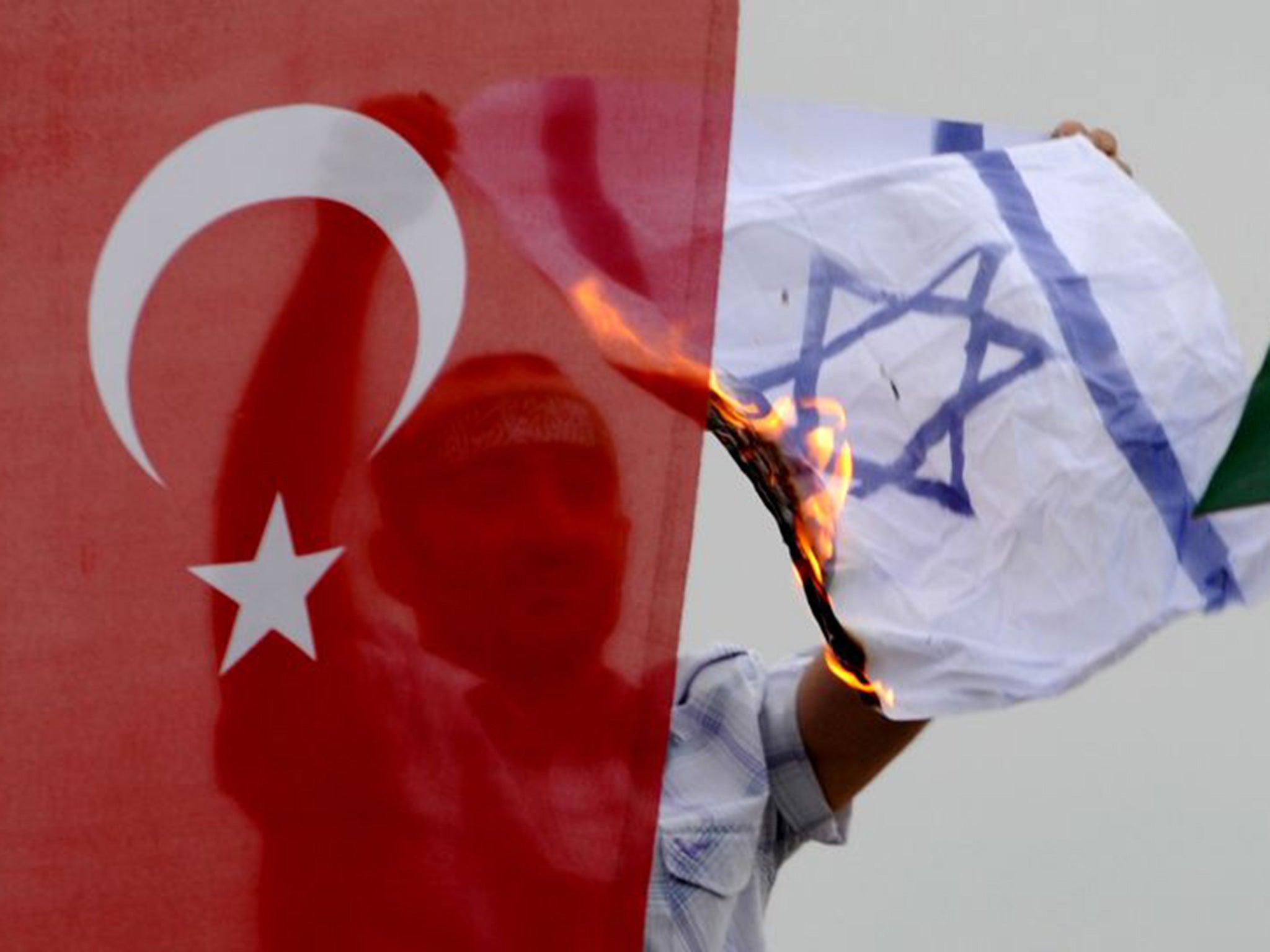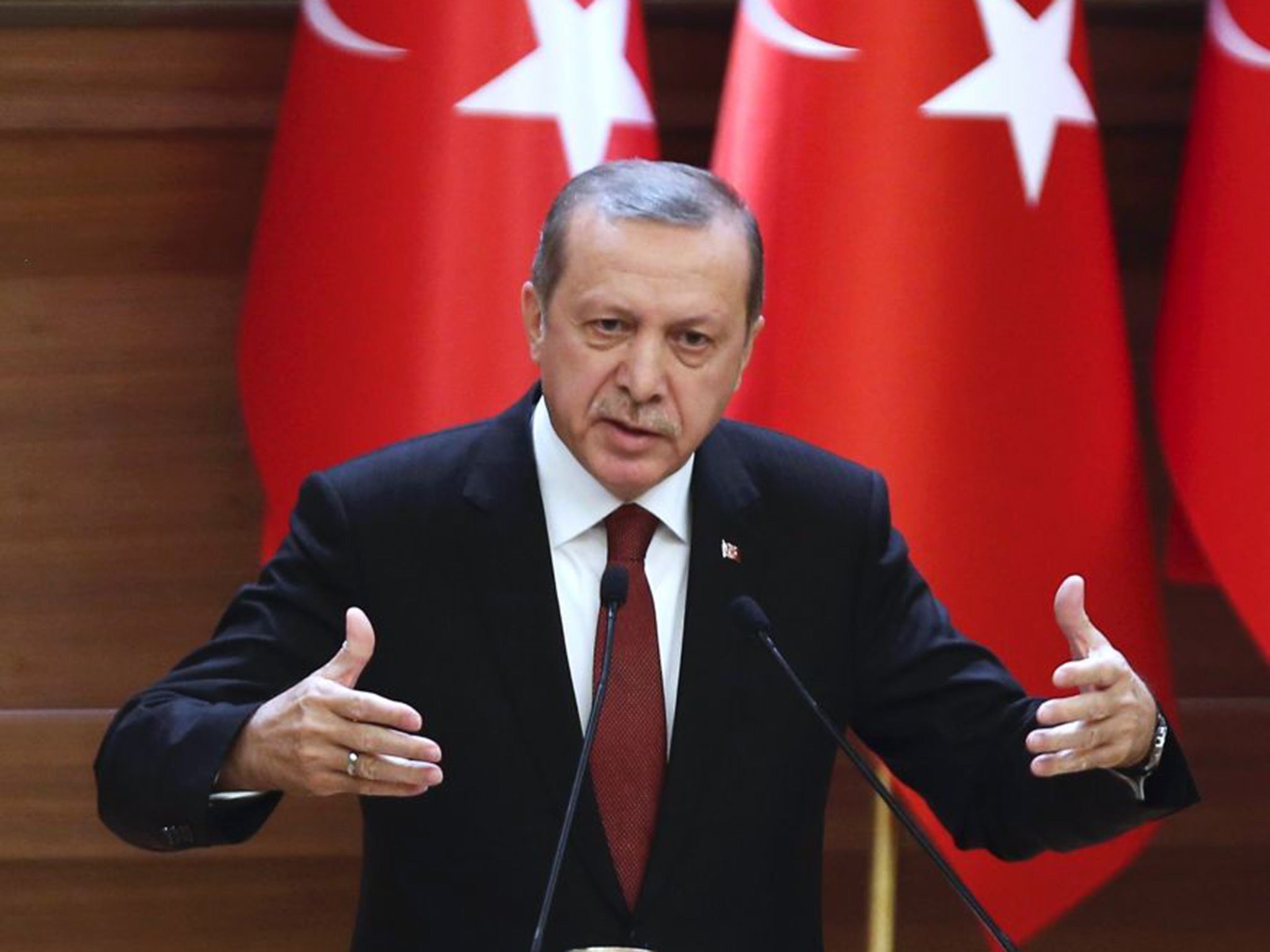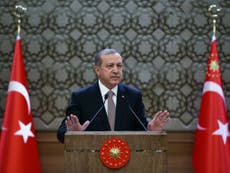Turkey and Israel poised to restore diplomatic ties after secret talks
Secret negotiations are driven by Ankara’s need to guarantee its energy supplies

After five years of deep hostility between the two strategic nations, and secret discussions in a neutral country, Turkey and Israel are poised to resume diplomatic ties.
Officials in Ankara and Jerusalem confirmed that clandestine discussions took place in Switzerland on Wednesday with both sides agreeing concessions as part of a draft deal. They included compensation for the relatives of 10 Turkish activists killed by Israeli naval commandos on a flotilla bound for Gaza, and a promise by Turkey to expel a senior Hamas figure.
A potential gas deal was also on the cards, driven by Turkey’s need to diversify its energy supplies amid a row with Moscow over the shooting down of a Russian jet.
Both sides stressed that a final agreement had not yet been secured. A Turkish demand that Israel ease the blockade on Gaza was said to be a key sticking point and any agreement will require the approval of Turkey’s President, Recep Tayyip Erdogan. Officials indicated, however, that the deal was close to being reached.
A renewed friendship between the two nations would be welcomed by the US and Europe as a rare diplomatic breakthrough at a time of profound turmoil across the Middle East. Israel is a close Western ally while Turkey, a Nato member, is seen as vital in the fight against Isis jihadists who control a swathe of Syria and Iraq.
Nato allies today agreed to send aircraft and ships to Turkey to strengthen air defences on its border with Syria.
Turkey and Israel had previously enjoyed strong relations but the partnership became strained following the Israeli invasion of Gaza in December 2008.
A month later, Mr Erdogan, who was then Prime Minister, stormed out of an event at the World Economic Forum in Davos after telling the Israeli President Shimon Peres that the offensive in the Palestinian territory was “very wrong”, adding: “When it comes to killing, you know well how to kill.”

The breaking point came in 2010 when Israeli forces boarded a Turkish vessel seeking to break the Gaza blockade with an aid shipment. Nine activists were shot dead, while a tenth later died of his injuries.
Despite a much-touted foreign policy philosophy of “zero problems with neighbours”, the stand-off with Israel, the conflict in Syria, a problematic relationship with Baghdad and the military coup in Egypt has left Turkey with few friends in the region.
Turkish officials say that Ankara has been testing the water with Israel for some time, pointing to a high-level meeting between the two sides quietly held in June. They admit, however, that a furious row with Moscow triggered by Turkey’s downing of a Russian jet last month provided fresh impetus for a reconciliation.
Turkey is Russia’s second biggest-buyer of natural gas, while Israel is looking for customers for its own gas exports. Jerusalem and Ankara also share a mutual suspicion of Iran’s and its regional ambitions, as well as alarm at the chaos in Syria. Mr Erdogan hinted that a deal was possible at the start of the week when he said that normalisation “would be good for us, Israel, Palestine and the entire region”.
A senior Turkish official told The Independent that he believed a “comprise” could be reached over the President’s demand for the total lifting of the blockade of Gaza. Given that Israel sees the travel and import restrictions as vital to its national security, analysts said a fudge would have to be reached.
Louis Fishman, an assistant professor at Brooklyn College, said that he believed the two countries could “find a middle point”. Allowing Turkey a major role in the reconstruction of Gaza could be one such compromise, he suggested.
Subscribe to Independent Premium to bookmark this article
Want to bookmark your favourite articles and stories to read or reference later? Start your Independent Premium subscription today.





Join our commenting forum
Join thought-provoking conversations, follow other Independent readers and see their replies
Comments